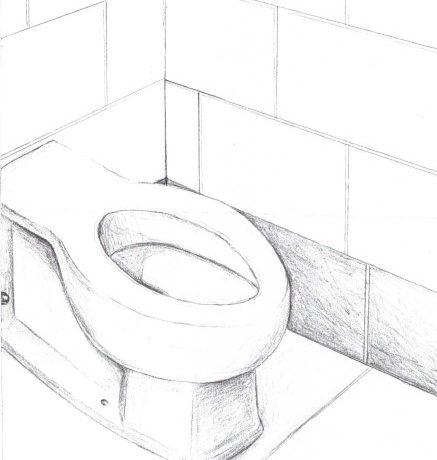I entered the system a few weeks after my 23rd birthday, young enough that there was the very real risk of losing myself so completely I forget my own name. I know that sounds dramatic. You’re probably wondering who could really forget their own name. What I mean when I say “name” though is the identity mentally attached to that label. The child of your parent, the younger sibling, a hard worker, a fun time friend – a mix of all of these even. A name is more than just some letters formed together; it’s the first identity most of us begin to form ourselves around. In this context, losing my name was a possibility that I hadn’t even been warned to guard against.
I live around countless women who along way somewhere fell into the lull of monotony and consequently lost themselves. The easiest way to spot this is by the (lost) individual’s complete lack of acknowledging anything outside/prior to prison. The entire focus of life orbits around the barbed wire fences and the people within them. This observation is in no way meant to be disparaging to the afflicted. If you don’t know how vital clinging to your name is, then it slowly can be leeched away.
I fully recognize how fortunate I am to have done 16+ years of incarceration and still know who I am. This is largely in part to my family’s refusal to switch the lens they viewed me through to accommodate the number I’d been assigned, because they still saw just Ashleigh when regarding me. Along the way whenever I slipped and was in danger of falling, they offered me a hand until I could go it alone again.
This is one of those largely ignored consequences of our industrialized prison system. With much more urgent issues needing attention, coupled with a population that doesn’t elicit much sympathy from the mainstream, this dehumanization is swept under the rug. This doesn’t make it less real however, or the damage less important. The intentional and forced repression of the individual as a name, as a person, is immediate. The assigning of a person’s designated prison ID number happens before the person is even sentenced.
The words that correlate to this new label cut deeply at first. Convict, criminal, trash, property of the state, inmate; just a few for example. Each time one of these labels is attached to an individual, it cuts a little deeper, eventually sinking into the marrow of one’s bones. The realization soon follows that the person you once recognized as you, is in no way close to resembling the shell absorbing these labels.
The biggest obstacle one must overcome regarding this matter is accepting this new label in the context of intersectionality. Yes, I do now fall under the identity of felon or inmate, but that doesn’t mean I’m no longer every bit of the multifaceted person I existed as before. It’s just another facet. It’s not healthy to ignore or refuse to acknowledge that I’m a part of this group, just as it’s dangerous to wholly embrace it as my entire identity. Middle of the road then would be allowing space for this identity alongside all the others. If we can each accept ourselves, I’m hopeful that others will follow suit.




No Comments